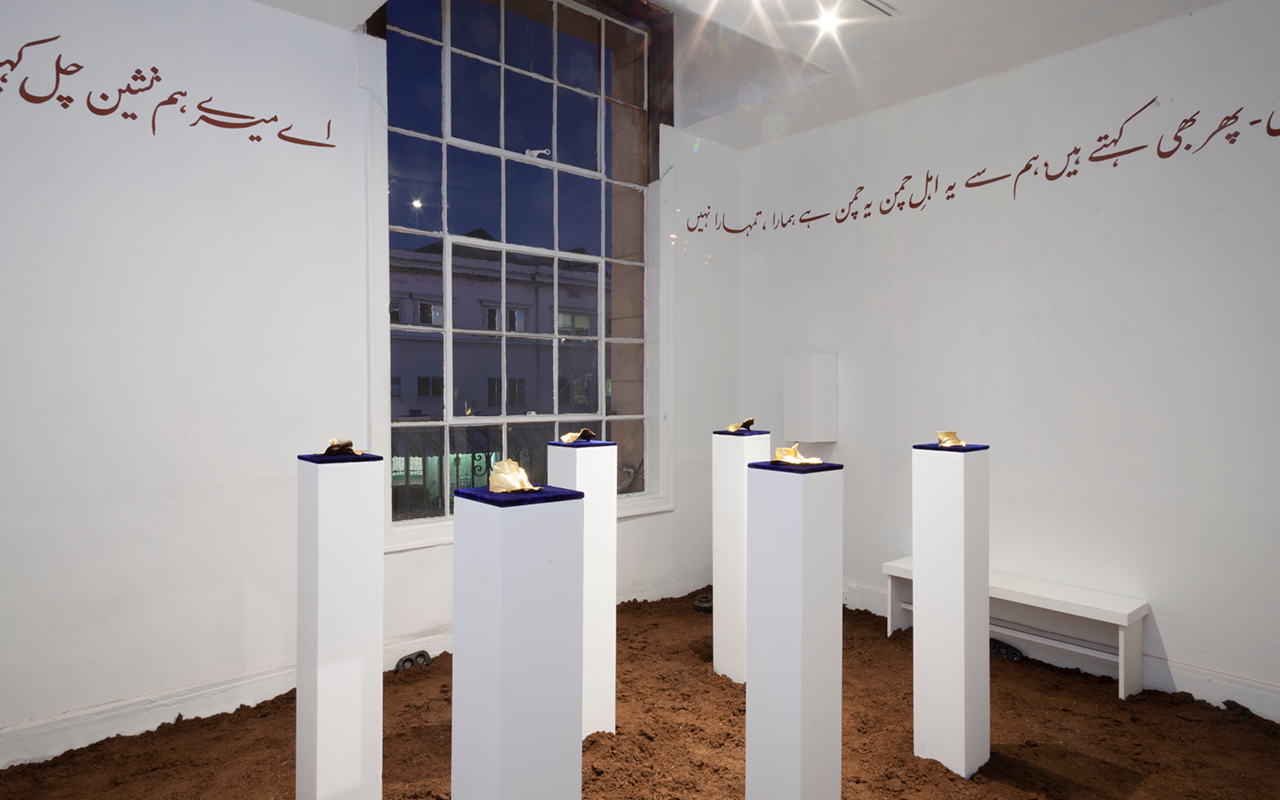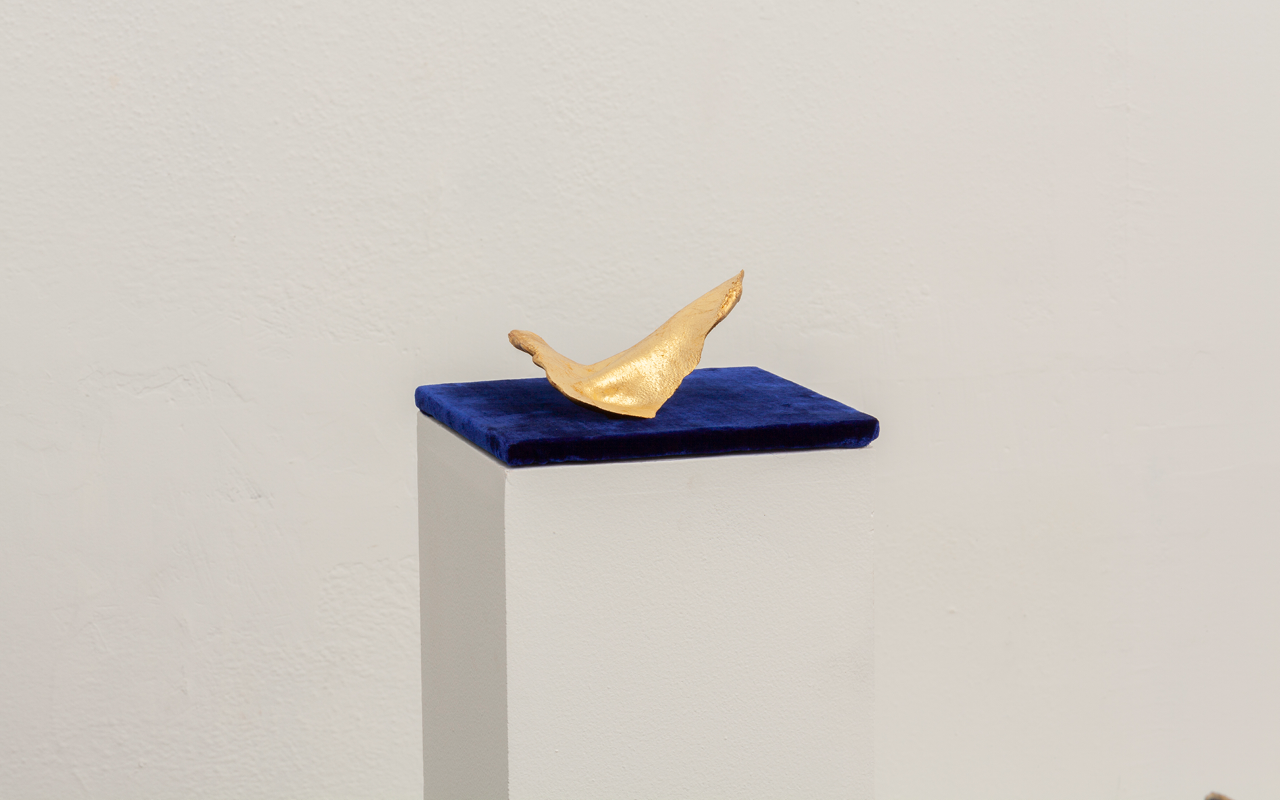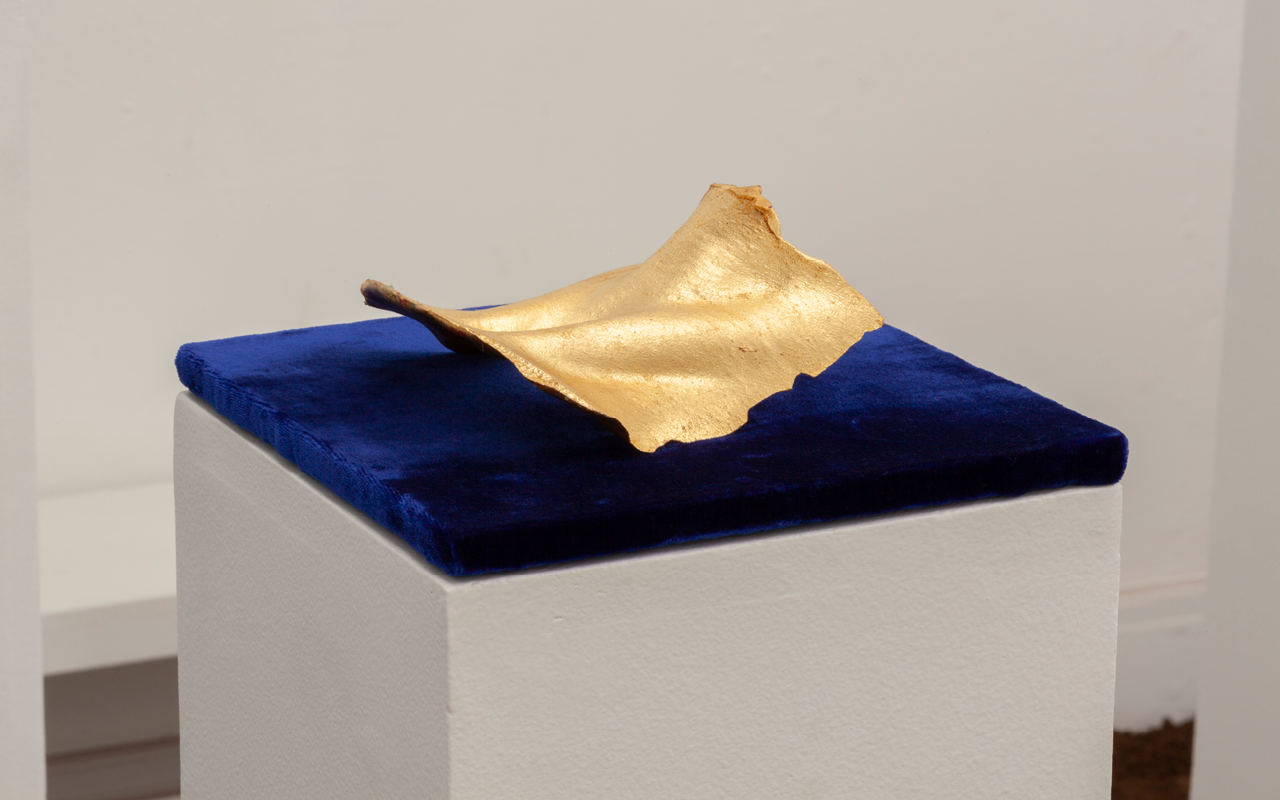Arshia Fatima Haq
The Second Coming of Fatima
November 16 - December 21, 2019
When the land of flowers required blood,
Our throats were the first to be cut
Still, the owners of the garden say,
This land is ours, and not yours.
Our throats were the first to be cut
Still, the owners of the garden say,
This land is ours, and not yours.
The Koh-i-Noor, or Mountain of Light, is perhaps one of the most storied gems in the world. Originally sourced from the Golconda mines of Andhra Pradesh in the 18th century, the diamond now rests amongst the British Crown Jewels, after passing through several bloodied hands and developing the reputation of bringing ill fate to the men who possessed it. Lore that grew up around its misfortune says that it is meant to be worn only by gods and women. Fifty years after Briish laqyer Cyril Radcliffe’s midnight drawing of an arbitrary line splitting the subcontinent in two – an ill-informed cartographic gesture which resulted in large scale violence, mass rape, a mortality toll of 2 million and the displacement of 14 million – both India and Pakistan continue to request the repatriation of this jewel, amongst other stolen artifacts.
Artist Arshia Haq, whose work considers this moment and the many centuries of violence that led to its manifestation, centers the embodiment of mourning as a way to reconstruct her and her collective relationship to pain, loss, and violence. Women, in particular, were brutally objectified in the pursuit and desire for nationalism upon colonialism; their bodies sacrificed for a precarious future. Haq harnesses the affect of this historical trauma and creates a room for reflection. The result is a haunting installation that speaks to the complexities of the erasure and validation of women. In a room coated the color of the earth lies an arsenal of gilded throats, the jewels which are also the vessels of severed or silenced speech. Sitting on pedestals, the pieces are fragments of the violated body worthy of reverence, an homage to the physical costs of the colonial acquisition and appropriation of women’s jewelry, wealth, and worth in the Indian subcontinent. Acquisition, on an intimate and institutional level, is explored here through the lack of repatriation of collection objects in Western museums and the violation of female intimacy, rites, and rights.
A sound piece entitled, The Second Coming of Fatima, made in collaboration with artist Nour Mobarak, merges a sonic rendition of the above Urdu poem with field sounds, from bird songs of the Deccan plateau to news broadcasts as well as more guttural evocations. Fatima, the only daughter of the prophet Muhammad, is an iconic figure in the Muslim female pantheon. Haq’s installation pays homage to historical, religious, and mythical female characters, through which she gives form to the amorphous and nebulous process of mourning. Loss erupts from within the earthen soil, and grieving those sacrificed becomes a release, a cathartic rupture that yearns to heal.
Arshia Fatima Haq (born in Hyderabad, India, based in Los Angeles, CA) works across film, visual art, performance and sound. She is interested in counter-archives, speculative documentaries, and the blurred lines between fact and fiction, and is currently exploring themes of embodiment and mysticism, particularly within the Islamic Sufi context. Her body of work stems from the complexities of inhabiting multiple personas – woman, Muslim, immigrant, citizen – and is conceptualized in feminist modes outside of the Western model. Narrative threads include migration, celebration, warfare, nostalgia, homeland, and borders, often within realms of Islamic influence, through both traditional forms and kaleidoscopic reinventions via pop culture. She is the founder of Discostan, a collaborative decolonial project working with cultural production from the SWANA (South and West Asia and North Africa) region.
Haq's work has been featured at Museum of Contemporary Art Tucson, the Station Museum of Contemporary Art, Broad Museum, LACE, Toronto International Film Festival, MOMA New York, Hammer Museum, LAXArt, Centre Georges Pompidou, and the Pacific Film Archive. Currently, she hosts and produces monthly radio shows on Dublab and NTS, and recently released an album of field recordings from Pakistan on the Sublime Frequencies label. She received her MFA in Film and Video from California Institute of the Arts in 2005, and is a recipient of the California Community Foundation Visual Artist Fellowship, the Rema Hort Mann Emerging Artist Grant, and the Onassis AIR Fellowship.
 The Second Coming of Fatima, 2019. Gypsum, gold leaf, velvet, powdered mica, dirt.
The Second Coming of Fatima, 2019. Gypsum, gold leaf, velvet, powdered mica, dirt.









